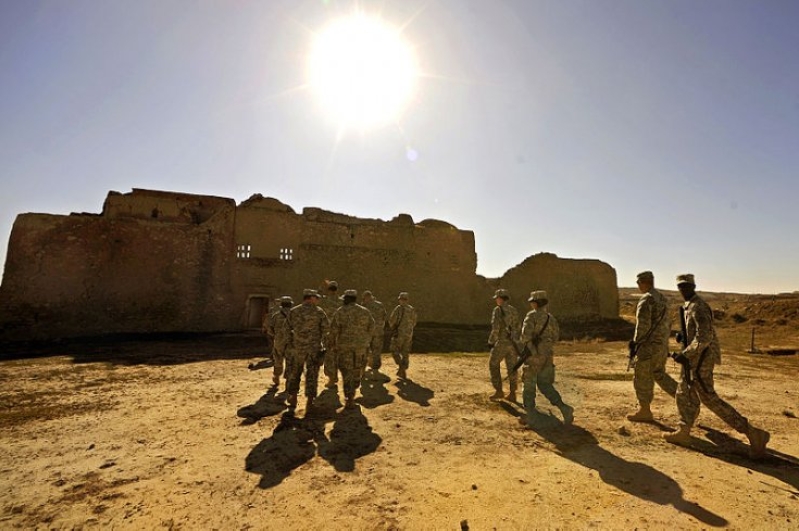
Iraq's oldest Christian monastery was ruined as another target of the Islamic State of Iraq and Syria (ISIS) group's relentless destruction of ancient cultural sites. U.S. troops and advisers had worked to protect and honor the monastery.
Satellite photos obtained exclusively by The Associated Press confirm St. Elijah's Monastery of Mosul has been completely wiped out, AP reports Wednesday.
For 1,400 years the compound survived various types of natural and manmade assaults, serving as a place of worship recently for U.S. troops, cites AP.
This month, at the request of the AP, satellite imagery firm DigitalGlobe set up a high resolution camera to grab photos of the site, and then pulled earlier images of the same spot, reports CBS News.
Before it was razed, a partially restored, 27,000-square-foot stone and mortar building stood fortress-like on a hill above Mosul. Although the roof was largely missing, it had 26 distinctive rooms including a sanctuary and chapel. One month later photos show "that the stone walls have been literally pulverized," said imagery analyst Stephen Wood, CEO of Allsource Analysis, who pinpointed the destruction between August and September 2014.
Wood said bulldozers, heavy equipment, sledgehammers and possibly explosives were used on the monastery. "They destroyed it completely."
The site represents several historic events. Built in 590 by Assyrian Christian monk Dair Mar Elia, from which it took the name, the holy site important to the Chaldean Catholic community had been a place of pilgrimage for centuries. Tragedy struck at St. Elijah's in 1743, when as many as 150 monks who refused to convert to Islam were massacred by a Persian general. In 2003, St. Elijah's wall was smashed by a tank turret blown off in battle.
Generations of monks tucked candles in the monastery's niches and prayed in its chapel. The Greek letters chi and rho, representing the first two letters of Christ's name, were carved near the entrance.
Catholic priest Rev. Paul Thabit Habib, 39, told AP he can't fully describe his sadness. "Our Christian history in Mosul is being barbarically leveled. We see it as an attempt to expel us from Iraq, eliminating and finishing our existence in this land."
St. Elijah's joins the more than 100 looted and demolished religious and historic sites, including mosques, tombs, shrines and churches in Syria and Iraq.
Confirmation about this monastery's destruction came a day after the United Nation's reported ISIS had repeatedly blown up houses of Christians living in Iraq to punish minorities and potential opponents, reports International Business Times. In a report on the conflict, UN officials said they documented the destruction of at least 31 Christian homes in the Mosul area from May to October 2015.





![[Exclusive Interview] A revelation within the brink of life and death — Meg Leung’s mission in Christian art](https://www.gospelherald.com/media/cache/thumbnail/7/21/72163sp_273w_150h_1x_1y.jpg)

